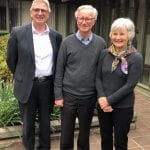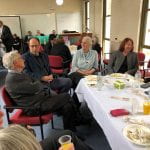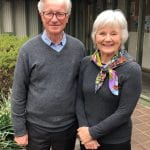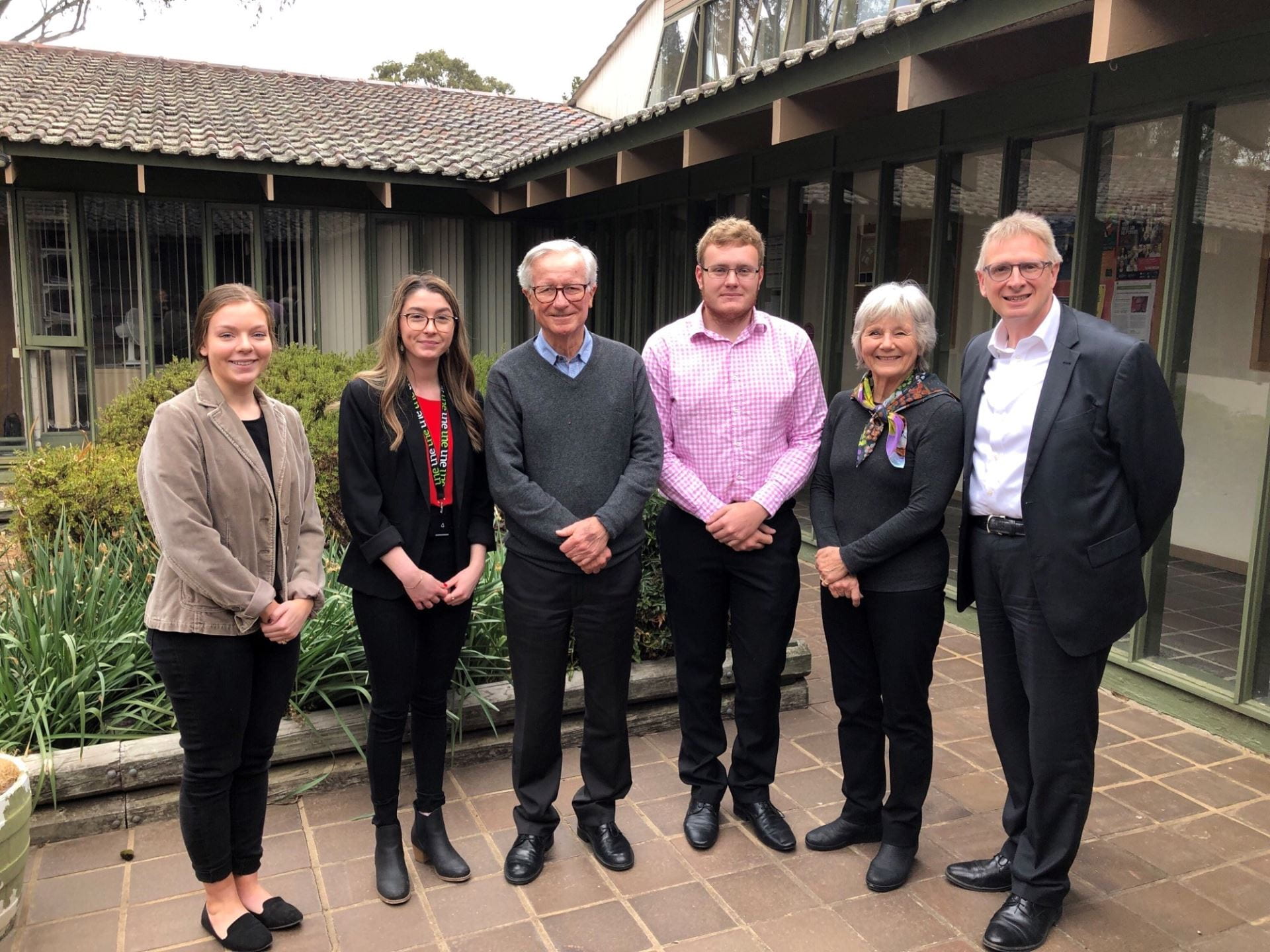Written by Julia Day
One of the best aspects of my job is meeting the wide variety of visitors we host at #UNELaw. Today I met one of the kindest and inspirational people I have met in a long time- the Honourable Fred Chaney.
Like many of us, Mr Chaney’s social conscience and fundamental values were piqued when he was a child at school. When he witnessed Indigenous people in the 1950s getting treated differently from the rest of the student cohort he was deeply offended. The fundamental belief people should be treated equally stayed with him into his adult life and was one of the primary reasons Mr Chaney chose to join the Liberal Party.
 One of the first questions I asked Mr Chaney was how he thinks the political landscape has changed since he was engaged in political life. His answer was fascinating and full of insight. Mr Chaney noted ‘the main problem with politics today is that there has been a death of ideology. When I was in political office there was a clear division between the doctrinal basis of the Labor and the Liberal parties. In other words each party had a fundamental ideology and set of beliefs that underpinned their decisions. This is no longer the case, which leads to decision making which is random and chaotic.’
One of the first questions I asked Mr Chaney was how he thinks the political landscape has changed since he was engaged in political life. His answer was fascinating and full of insight. Mr Chaney noted ‘the main problem with politics today is that there has been a death of ideology. When I was in political office there was a clear division between the doctrinal basis of the Labor and the Liberal parties. In other words each party had a fundamental ideology and set of beliefs that underpinned their decisions. This is no longer the case, which leads to decision making which is random and chaotic.’ 
I also asked Mr Chaney what it was like working with iconic people such as Malcolm Fraser. Mr Chaney was originally hesitant for Mr Fraser to become the leader of the Liberal Party. Mr Fraser won him over though on the issue of race. He remembers Fraser talking about the issue of apartheid and noting ‘this is an interesting debate. Whilst I am the Leader of the Liberal Party though, there will be no policy which is based on the colour of someone’s skin.’ Mr Chaney also recalls Fraser’s statement ‘I regard Fred as the conscience of the Liberal Party- I always listen to him, but often choose to do the opposite!’ 
 As they say, behind every great man is an ever better woman (or is it is just me who says this??) and there is no doubt Mr Chaney has this with his wife Angela. It is evident the initial attraction Angela had for Fred and ‘his unusual and passionate views and strong sense of social justice’ is still present today. I was fascinated to find out how Angela coped with bringing up her kids whilst her husband was front and centre of public life. Like many others, Angela relied on her community of family and friends to bring up her sons whilst her husband was participating in political life. In fact Mr Chaney was in public life for his son’s entire schooling career. The Chaney boys quickly got used to having a dad who was often unable to get to their school based events. They were always grateful though that their lives had added interest and colour as a result of their dad’s career.
As they say, behind every great man is an ever better woman (or is it is just me who says this??) and there is no doubt Mr Chaney has this with his wife Angela. It is evident the initial attraction Angela had for Fred and ‘his unusual and passionate views and strong sense of social justice’ is still present today. I was fascinated to find out how Angela coped with bringing up her kids whilst her husband was front and centre of public life. Like many others, Angela relied on her community of family and friends to bring up her sons whilst her husband was participating in political life. In fact Mr Chaney was in public life for his son’s entire schooling career. The Chaney boys quickly got used to having a dad who was often unable to get to their school based events. They were always grateful though that their lives had added interest and colour as a result of their dad’s career.
To hear more about Mr Chaney’s inspiring life, you are welcome to join the #UNELaw community tonight from 5pm at the Armidale Town Hall.



